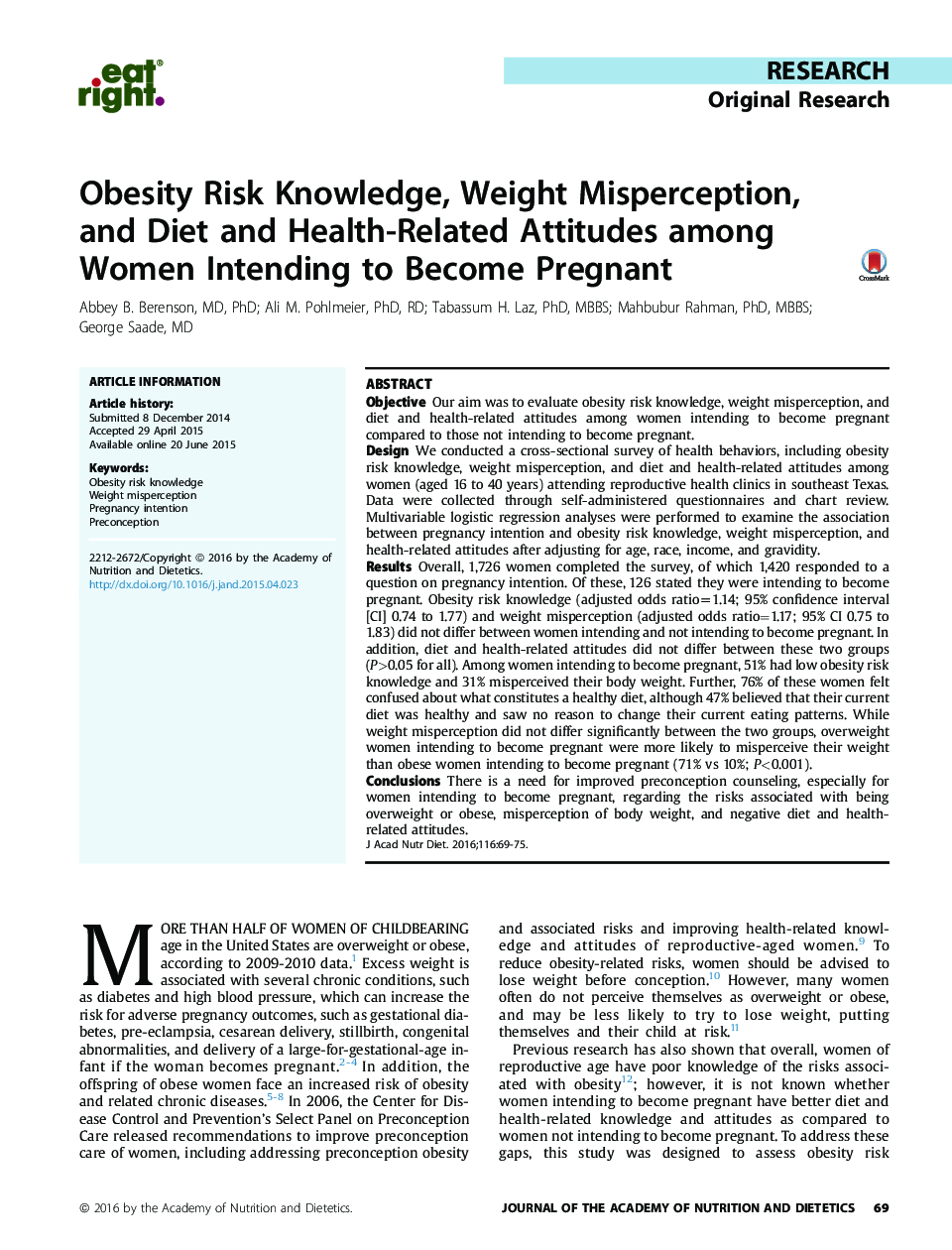| کد مقاله | کد نشریه | سال انتشار | مقاله انگلیسی | نسخه تمام متن |
|---|---|---|---|---|
| 2656477 | 1645501 | 2016 | 7 صفحه PDF | دانلود رایگان |
ObjectiveOur aim was to evaluate obesity risk knowledge, weight misperception, and diet and health-related attitudes among women intending to become pregnant compared to those not intending to become pregnant.DesignWe conducted a cross-sectional survey of health behaviors, including obesity risk knowledge, weight misperception, and diet and health-related attitudes among women (aged 16 to 40 years) attending reproductive health clinics in southeast Texas. Data were collected through self-administered questionnaires and chart review. Multivariable logistic regression analyses were performed to examine the association between pregnancy intention and obesity risk knowledge, weight misperception, and health-related attitudes after adjusting for age, race, income, and gravidity.ResultsOverall, 1,726 women completed the survey, of which 1,420 responded to a question on pregnancy intention. Of these, 126 stated they were intending to become pregnant. Obesity risk knowledge (adjusted odds ratio=1.14; 95% confidence interval [CI] 0.74 to 1.77) and weight misperception (adjusted odds ratio=1.17; 95% CI 0.75 to 1.83) did not differ between women intending and not intending to become pregnant. In addition, diet and health-related attitudes did not differ between these two groups (P>0.05 for all). Among women intending to become pregnant, 51% had low obesity risk knowledge and 31% misperceived their body weight. Further, 76% of these women felt confused about what constitutes a healthy diet, although 47% believed that their current diet was healthy and saw no reason to change their current eating patterns. While weight misperception did not differ significantly between the two groups, overweight women intending to become pregnant were more likely to misperceive their weight than obese women intending to become pregnant (71% vs 10%; P<0.001).ConclusionsThere is a need for improved preconception counseling, especially for women intending to become pregnant, regarding the risks associated with being overweight or obese, misperception of body weight, and negative diet and health-related attitudes.
Journal: Journal of the Academy of Nutrition and Dietetics - Volume 116, Issue 1, January 2016, Pages 69–75
